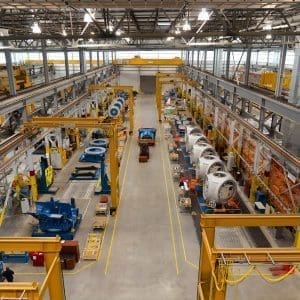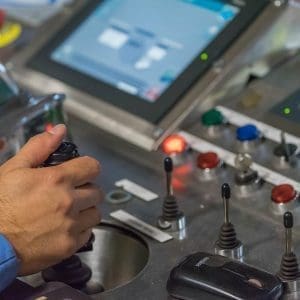Over the past few weeks I’ve had a couple of interesting discussions about the introduction of Twitter to Manufacturing. When someone poses a question like this to me, it throws me for a minor loop, because for very basic, practical reasons, it just doesn’t seem to apply. More keyboards & data entry on the floor? Not likely.
However, a few months ago I wrote this rather breathless item, expounding on a brainstorm regarding the use of YouTube and Twitter in a manufacturing setting. Back then, my summary point was about the value of alternative mechanisms for capturing and distributing process documentation. I noted that Twitter was less intimidating than other documentation tools – it’s all about capturing status or best practices. But after the past few months of heavier use (@jpmacl), I typically explain Twitter as a keyboard-enhanced conversation – a “false path” for Lean aficionados if you are trying to capture knowledge (the Archaeopteryx of Manufacturing KM?)
But Twitter as an alternative communication medium for folks on the floor? I really don’t think it’s a good fit – and this is based on practical experience as well as a little common sense.
The Tweeter as Information Source
Are you trying to understand how Twitter would work in your environment? Don’t think you can get it right without some decent hands-on time. You’ll find that it’s very intrusive – not something that you want on 100% of the time. For me, it makes sense when I’m catching up on notes for the day, clearing e-mails, scheduling meetings, or other lighter work that doesn’t suffer greatly from periodic chirps from my Tweetdeck. It’s running on the second monitor; every once in while I will glance over to scan the latest potentially valuable conversations to jump into.
This scenario would never work on the manufacturing floor. There’s no way the Environmental Health & Safety folks will allow anything to distract folks from completing the tasks at their workstation.
Besides, hitting the keyboard for status updates is exactly the kind of non-value-adding data entry that Lean mavens are working to eliminate. Note that when I say “non-value-adding”, I am referring to Finished Goods; standard work, training and knowledge retention are important in a Lean world, but not while you’re actually getting work done.
The Tweeter as Information Consumer
On the other hand, if there is a Tweetdeck-style application available, running on a screen that is visible to an entire workcenter – well, maybe the folks on the floor can be _consumers_ of Tweets. Then again, it’s just another RSS application, nothing Twitter-specific.
Web 2.0 Technology and Manufacturing
Are manufacturing firms using Twitter? I’d say that few are – and it’s based on the “personality” of a typical manufacturing company.
- IT is typically <3% of total revenue – not an environment that fosters experimentation / cutting edge IT work
- Lean is a growing force in manufacturing, and Lean is decidedly anti-computer – so no one will have a keyboard at the ready to start Tweeting!
Now, to be fair, you could cherry pick high-tech manufacturers; certainly, there are many engineering departments that are sharing information and communicating real time. But when I hear “manufacturing” I’m thinking line managers, shift supervisors … not typically the keyboard types. They like their push-to-talk phones, and that’s really all the instant communication they need.
Aren’t there any potential benefits of Twitter for manufacturing? Directly – not much, I’m afraid. However, as with any area of the business that traffics in knowledge capital, the Design Engineering and Manufacturing Engineering folks might find benefit in information-sharing collaborative networks and “real-time” connections.
Note, however, that I am greatly interested in hearing counter-examples of the above. Anyone aware of interesting Twitter-ing on the floor?



Comments (0)